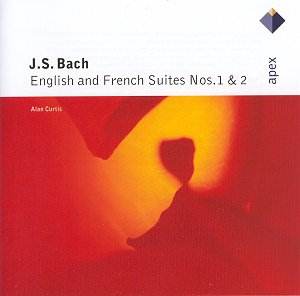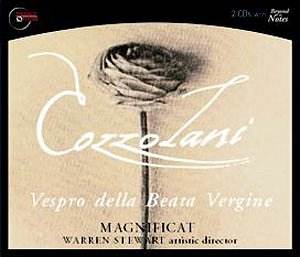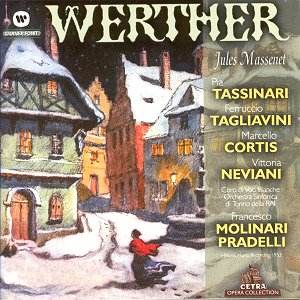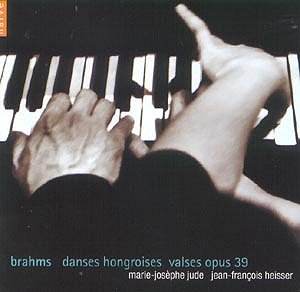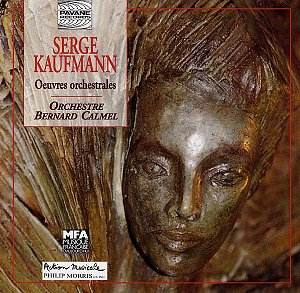 Composer: Serge Kaufmann
Composer: Serge Kaufmann
Works: Cantabile, Le temps déchiré, Elégie, Un matin à Varsovie, Et si un jour
Performers: Béatrice Barbary (soprano), Anne Holroyd (mezzo-soprano), Philippe Pennanguer (cello), Serge Kaufmann (speaker), Ensemble vocal Marielle Rousseau, Orchestre Bernard Calmel
Recording: Studio 49 OSF-Euterpe, Vanves, February 1996
Label: Pavane ADW 7362
Serge Kaufmann, a composer often overshadowed by his prolific work as a broadcaster and music organizer, emerges in this collection as a figure of considerable artistic merit. His oeuvre, deeply rooted in a tradition that balances neo-classical poise with an expressive lyricism, is showcased in the present recording. The five works included—Cantabile, Le temps déchiré, Elégie, Un matin à Varsovie, and Et si un jour—illustrate Kaufmann’s humanistic inclinations and his adeptness at weaving personal narratives into the fabric of his music.
The performances are marked by a refined sensibility that resonates with Kaufmann’s intentions. The standout piece, Cantabile, unfolds as a triptych for cello, strings, and harpsichord, utilizing a language that evokes the emotive weight of Bloch while maintaining its distinct voice. Philippe Pennanguer’s cello work is particularly noteworthy, embodying both technical precision and an emotional depth that elevates the music beyond mere academic exercise. The interplay between the instruments is nuanced, reflecting Kaufmann’s skill in orchestration, which remains fluid and engaging throughout.
Le temps déchiré, a dramatic scena for mezzo-soprano and strings, finds Anne Holroyd delivering a compelling interpretation of Kaufmann’s poignant text about loss. The arioso style allows for expressive freedom, and Holroyd’s voice navigates the harmonic tension with grace. The occasional forays into Sprechgesang add a contemporary edge, though the overall tonal landscape remains classically grounded. In contrast, Elégie emerges as a stark, mournful processional for strings, suggesting echoes of Lutoslawski’s Musique funèbre. The texture is rich yet restrained, allowing the sorrowful character of the piece to unfold with a dignified solemnity.
Un matin à Varsovie represents a more ambitious undertaking, inspired by a haunting historical photograph. The initial recitation by Kaufmann sets a reflective tone, enhanced by the later integration of rhythmic recitation supported by percussion. While the sincerity of sentiment is undeniable, the piece occasionally suffers from a lack of structural cohesion, leading to moments that feel overly drawn out. A larger orchestration might have provided greater dramatic impact, yet its elegiac quality remains a testament to Kaufmann’s intent.
Et si un jour offers a refreshing shift, characterized by its straightforward choral structure. The simplicity of the refrain contrasts beautifully with the complexity of the solo lines, creating a compelling interplay that invites amateur choirs to engage with the work. The harmonic language recalls the pastoral beauty of Finzi, while the choral writing evokes the clarity of Honegger.
The recording quality is commendable, capturing the intricacies of Kaufmann’s orchestration without sacrificing the warmth of the performances. The ensemble, recorded in the composer’s presence, seems to embody a genuine understanding of the material, fostering an atmosphere of intimacy that enhances the listening experience. The sound engineering successfully balances the various sonic elements, allowing each voice and instrument to shine.
Serge Kaufmann’s music, as presented in this recording, merits deeper exploration and appreciation. His ability to articulate profound human experiences through a classical framework is both commendable and compelling. This disc stands as a valuable contribution to the contemporary classical repertoire, inviting listeners to engage with a composer whose works resonate with both emotional depth and technical sophistication. The collection serves as a fitting testament to Kaufmann’s artistry, ensuring his voice will not be easily forgotten.
